Scuba diving allows you to enter an incredible world that’s like no other you can experience on earth.
Divers get to see incredible creatures in their natural habitats and experience a feeling of weightlessness that can only be beaten by traveling to space.
However, it’s completely normal to feel some nervousness or even fear, especially when you’re starting.
After all, being underwater is undoubtedly not our natural environment.
Many people find that learning and experiencing scuba diving for themselves helps put a lot of their fears to rest.
For example, understanding how the equipment works and getting used to it can eliminate many worries.
However, some fears are deeper and may come from previous experiences. These can often be harder to get over.
That being said, with the right attitude, perseverance, and perhaps some help and encouragement, it’s often possible for even the most nervous to dive.
We’re going to consider many reasons why people might be scared of scuba diving and see what we can do to help.
- 3 Facts Why There’s No Need To Be Scared of Scuba Diving
- 8 of the Most Common Fears of Scuba Diving (Debunked)
- Can Scuba Diving Be Potentially Scary?
- What’s the Scariest Thing That Could Happen When Scuba Diving?
- What To Do When I Encounter a Scary Situation?
- Can I Scuba Dive if I’m Scared of the Open Ocean?
- Should I Be Scared of Dangerous Sea Life When Diving?
- Can I Scuba Dive if I’m Scared of Drowning?
- Are Some People More Likely Than Others To Find Scuba Diving Scary?
- How Can I Tell Whether I Will Be Scared of Scuba Diving?
- How Do I Get Over My Fear of Scuba Diving?
- 14 Tips How To Enjoy Scuba Diving Without Fear
- 1. Find the Right Instructor
- 2. Study Beforehand if Appropriate
- 3. Build Your In-Water Confidence
- 4. Make Small Steps
- 5. Don’t Be Afraid of Being Scared
- 6. Don’t Push Your Limits – Stay in Control
- 7. Find a Great Buddy
- 8. Enjoy Practice
- 9. Get Comfortable in Your Gear
- 10. Cold Makes Things Feel Worse
- 11. Avoid the Horrors of Seasickness
- 12. Be Rested
- 13. Remember to Breathe
- 14. Stay Inspired
- Conclusion
- You Might Also Like…
Disclosure: this post contains affiliate links (clearly marked with ), which means we may earn a commission if you buy something through them, at no additional cost to you.
3 Facts Why There’s No Need To Be Scared of Scuba Diving
While there are many reasons why a person might be scared of scuba diving, ultimately, the majority of them are concerned with the risk of injury or death.
So starting, let’s try and prove that scuba diving isn’t a dangerous sport.
1. You Are Extremely Unlikely To Get Injured Scuba Diving
Scuba diving has an excellent safety record.
Each year there are very few scuba diving injuries that require medical attention at a hospital.
The average yearly number of scuba diving injuries in the United States that require emergency room admission is 1,092.
This compares very well with other activities that have considerably higher numbers of injuries.
| Activity | Average Number of ER Admissions in the US per Year |
|---|---|
| Scuba Diving | 1,092 |
| Snowboarding | 4,438 |
| Bowling | 19,802 |
| Tennis | 21,301 |
| Golf | 34,321 |
| Volleyball | 57,303 |
| Fishing | 170,216 |
In addition to these low numbers, it is worth noting that the most common scuba diving-related injuries are sunburn, dehydration, and seasickness which are all readily prevented.
2. The Odds of Dying While Scuba Diving Are Very Low
Fatalities are tragic and, thankfully, incidents while scuba diving are extremely rare and compare favorably with other leisure activities.
A 2011 scientific study showed that in the United States and Canada, there are approximately 1.8 deaths per million recreational scuba dives made, which puts it in the category of “relatively low risk.”
This equates to one death in approximately every 556,000 recreational scuba dives.
By way of comparison, we can consider other sports, and as with injuries, we see that they have a much higher risk.
| Activity | Risk of Fatality |
|---|---|
| Scuba Diving | 1 in 556,000 recreational scuba dives |
| Skydiving | 1 in 220,301 jumps (more than 2 x scuba diving) |
| Mountain Hiking | 1 in 175,400 hours hiked (more than 3 x scuba diving) |
These numbers help us to see that scuba diving can logically be regarded as low risk.
Contributing Factors
When scuba diving fatalities are investigated, approximately 45 percent were precipitated by a pre-existing health condition, with about 25 percent being associated with a cardiac event.
The Divers Alert Network reports that:
“Older, heavier divers with pre-existing heart or blood-pressure conditions are at elevated risk of dying while scuba diving, compared with younger, healthier divers. Fifty-three percent of male and 54 percent of female victims were 50 years old or more.”
So while scuba diving can be considered low-risk, everyone should be aware of changes in their health and fitness and consider any relevant medical conditions concerning safe diving.
3. Scuba Divers Are Trained To Keep Themselves Safe
Unlike many sports, it is not possible to go scuba diving without getting training first from a professional.
Thanks to the training that all scuba divers receive, participants are better prepared to deal with potential problems than those taking part in many other similar activities.
In addition, scuba divers are more likely to look after their general health and fitness, which further helps to prevent fatalities.
The scuba diving course teaches you not only to dive but also a wide range of skills so that you, with your buddy, can safely cope in the event of an emergency.
Following the rules that a diver has been taught and maintaining their fitness is the best way to stay safe underwater and is amongst the reasons that the odds of injury while scuba diving are so low.
8 of the Most Common Fears of Scuba Diving (Debunked)
It’s important to understand that there are two types of fears related to scuba diving.
We can break them down into the more common fears caused by a lack of knowledge or a misunderstanding and fears that are rarer and more deep-rooted.
All fears are severe to the individual concerned and can stop them from learning or enjoying the wonderful hobby of scuba diving.
When we talk about debunking common fears, we will explain how a concern shouldn’t be an issue with knowledge.
We’re going to see that a lot of fears are addressed during your scuba diving course and that once you’re a certified diver, you will have far less to worry about because you’ll have learned about the problems and practiced the solutions to them.
You’ll learn the essential safety skills in your scuba course and practice them in a swimming pool first until you are confident.
You don’t need to worry about having to pick everything up in the deep ocean.
1. Running Out of Air
Your scuba unit has a pressure gauge that shows you how much air you have at all times.
You don’t need to be fixated on the gauge throughout your dive, but you will always know how much air you have left by checking it periodically.
You’ll need to check it more regularly the deeper you go as you will use more air at depth.
A good buddy will ask you how much air you have left from time to time, and you can do the same to them.
Both of you know how much air each other has left, so you can end the dive safely when it’s time.
So long as you keep an eye on your gauge, running out of air isn’t going to happen.
If you find that you are using your air faster than your buddy, you can follow our tips to help improve your air consumption.
If you did ignore your gauge and manage to run out of air, your scuba course teaches you what to do.
Your buddy carries a spare regulator with them called an alternate air source, or octopus, that is there for you to breathe from if you should need it.
2. Not Being Able To Breathe
A common fear is not being able to breathe properly underwater or it being uncomfortable.
Your scuba regulator is what is called a demand valve. This means that when you demand air by breathing in, your regulator delivers it to you.
With just a gentle inhalation, you’ll feel air coming to you.
Once you’ve gotten used to the noise it makes and how the mouthpiece feels, it is common to find it easier to breathe from a scuba regulator than it is to breathe from a snorkel.
This is because your scuba regulator is gently delivering the air to you rather than you having to suck it in as you do with a snorkel.
3. What About if the Regulator Breaks?
Your scuba regulator comprises several parts, but the critical thing to know is that it is designed to stick open if it breaks, giving you air.
In your scuba course, you learn to breathe from a free-flowing regulator so you know what to do in the rare event that this should happen.
Remember that your instructor should allow you to practice the skills as many times as you want until you’re completely comfortable during your course.
So while breathing from a free-flowing regulator might look complicated, you shouldn’t be passed as a diver unless you can meet the performance criteria to manage this and every other skill comfortably.
Also, remember that your buddy has another regulator for you to breathe from, so if this situation happens, you’ll only be breathing from your bubbling regulator for a short while until you take your buddies.
4. Getting Water Up Your Nose or Inhaling Water
Your nose is safely inside your scuba mask when you dive, which is filled with air, so while you can’t breathe through your nose, you shouldn’t need to worry about getting water in your nose.
If a bit of water does manage to get in the mask, you’ll have been taught how to get it out, but we will get to that next.
Inhaling water isn’t a concern, as you will have learned how to seal your lips around your scuba regulator mouthpiece to stop any water from getting in.
If a little bit of water does manage to get into your mouth, then one of the first skills you’ll learn is how to push it back out through the regulator.
5. Getting Water in the Mask and Mask Clearing Skills
Probably the most common cause of fear on a scuba diving course is mask skills.
Getting water out of your mask is an essential skill to master.
At some point when you dive, even if it’s just from some hair getting caught in the mask skirt, you will experience water leaking in.
During your course, you’ll learn how to deal with the mask in small stages.
You’ll practice each one until you are confident and then move on to the next step.
Remember that none of these skills are supposed to be torture.
With practice, your confidence will build, and you’ll soon be able to clear any amount of water out of the mask with ease.
6. Being Alone
Remember that you will always dive with a buddy underwater, so you are never alone.
Your buddy is there, not only to help you if you have a problem but also to share the experience.
As well as keeping an eye on each other, you can show each other exciting discoveries and generally enjoy each other’s company underwater.
One of the aspects that many people find so enjoyable about scuba diving is the social interaction with like-minded people.
So if you don’t have a buddy to take on a trip, you can be pretty confident that finding someone to dive with won’t be a problem.
7. Not Being Able to Communicate
As you can’t talk underwater, you’ll learn all the hand signals on your course to allow you to get your point across.
Familiar buddies develop their system of hand signals combined with facial expressions and eye movements to have entire conversations underwater.
8. Equalizing Your Ears
Problems with equalizing their ears are the most common issue that student divers come across.
You’ll learn to equalize your ears and other air spaces during your course and will practice in the swimming pool.
The vast majority of people can equalize successfully. It is just a case of finding the technique that works.
Some rare medical conditions prevent you from equalizing, but if you can fly on an airplane without a problem, you should be fine diving.
Can Scuba Diving Be Potentially Scary?
Yes, scuba diving can be scary. However, some level of fear is a good thing, and you certainly are not alone.
Scuba diving can be dangerous, and without respecting this, your chances of an accident underwater increase hugely.
Fear reminds you that there are potential risks and so should not be ignored.
However, by respecting the rules, remembering your training, staying fresh, and maintaining your health and fitness, scuba diving is very low risk.
There are things that can be scary about scuba diving caused by mental anxieties that can be tough to address.
Again, you can be assured that every single scuba diver has been scared at some point.
Remember that it is essential to try and identify and address any fears so that they don’t cause more significant problems underwater.
You should always raise any problems that are bothering you, and if they’re not accepted, those are not the people you should be diving with.
You shouldn’t dive if you feel pressured into a situation where you’re not comfortable.
Anxieties that might make scuba diving scary include:
- Fear of failure and embarrassment
- Claustrophobia
- Fear of drowning
- Fear of the ocean
- Fear of depth
- Fear of sharks or other marine life
These fears can be addressed in almost every case to allow the sufferer to scuba dive.
It might be a case of learning more about the issue, or professional assistance might be needed with more deep-rooted fears.
The important thing to remember is that it’s quite normal to have fears.
After all, we were not born with gills.
What’s the Scariest Thing That Could Happen When Scuba Diving?
If you really overthink it, many horrifying things could happen while scuba diving.
Getting trapped inside a shipwreck, where there is no visibility due to the silt, and your buddy is nowhere near as you run low on air is probably as bad as it could get.
However, how would you have gotten into this situation?
There is a reason why divers need to have extensive training before they are allowed into shipwrecks.
There is a reason why we always stay close to our buddy.
By diving cautiously and staying within the limits of your training, experience, and comfort, you can avoid almost every possible scary situation underwater.
What To Do When I Encounter a Scary Situation?
The most important reaction is to stop and breathe.
Taking a few slow breaths can calm you sufficiently to remember your training and deal with the situation.
It might be something that you can deal with and then continue your dive, or it might be something that means you need to end the dive immediately.
Remember that if you are unsure, you can always end the dive for any reason.
Can I Scuba Dive if I’m Scared of the Open Ocean?
There’s no reason why someone with a fear of the ocean shouldn’t learn to scuba dive.
Remember that you learn all the basics and practice in a swimming pool or a sheltered, calm shallow water area with excellent visibility.
It’s only after you’re comfortable there that you move into deeper water.
Remember that it is up to you to dive where you want to. Not everyone has to dive in the open ocean.
It is possible to dive into shallow lagoons and find plenty of things to see.
Similarly, freshwater lakes can be very enjoyable to dive in and are often closer to home too.
Gaining experience and taking small steps forward with a trusted instructor and buddy can go a long way to overcoming your fears.
Should I Be Scared of Dangerous Sea Life When Diving?
It’s important to remember that most marine life injuries happen either from accidentally coming into contact with the animal or through the animal feeling threatened and defending itself.
The incidence of marine life injuries caused by other reasons is incredibly low.
People’s concerns about sharks, in particular, are excessive compared to reality.
Remember that a scuba diver wrapped in neoprene, covered in hoses, and carrying a metal tank is not a tasty, nutritious meal.
In short, we are not on a shark’s list of desirable morsels.
The total number of incidents involving sharks is very low each year – just 57 in 2020.
Only 4% (in 2020) of the total number of shark incidents involved scuba divers instead of surfing, which had 61% of incidents.
Scuba divers shouldn’t worry about sharks or other animals underwater.
So long as sensible practices are followed, and you don’t try to touch, feed, or otherwise mistreat them, they can be enjoyed as extraordinary natural encounters.
Can I Scuba Dive if I’m Scared of Drowning?
True phobias should be taken seriously but aren’t necessarily why you won’t ever be able to scuba dive.
On a basic level, it might just be necessary to take one-on-one swim lessons and gain confidence in the water at your own pace before moving on to learning scuba diving.
However, if you have suffered from a traumatic experience in the past, you might need to seek professional assistance to identify what you need to work on.
Remember that when you do get to the point where you are ready to scuba dive that you need to discuss any issues with your instructor beforehand so they can work with you accordingly.
Find a patient instructor that you get on with, and don’t try and rush or put yourself under any pressure.
Are Some People More Likely Than Others To Find Scuba Diving Scary?
There are certain categories of people that are more likely to find scuba diving scary.
These could include someone who:
- Has a previous bad experience in the water in their life
- Isn’t confident with their water skills or swimming
- Is learning to scuba dive under pressure from or wanting to impress a partner or significant other
- Is worried about having to learn and remember so many things
- Is concerned about their fitness of health
- Usually suffers from claustrophobia, agoraphobia, or vertigo
- Experiences depression, anxiety, or panic attacks
When you learn to scuba dive, you complete a medical form that checks for conditions that could cause problems underwater.
You can discuss general concerns with your scuba instructor, and you can usually find a way together to work past them.
You should always talk medical issues through with a doctor who specializes in diving medicine.
How Can I Tell Whether I Will Be Scared of Scuba Diving?
There are several ways to tell if you will be scared of scuba diving.
Probably the best way is to talk about it with a scuba diving friend or instructor.
If their descriptions of what it’s like to learn to dive leave you feeling very uncomfortable, there might be a problem.
You could also try watching videos of scuba diving online.
If the feeling of discomfort outweighs interest and excitement, then you might also have some work to do.
However, as we’re about to see, the best way to find out is to give it a try carefully.
How Do I Get Over My Fear of Scuba Diving?
If, after considering what might be causing your fear of scuba diving, you are confident that it’s not something that needs professional assistance, then the best way to get over it is to slowly and cautiously give scuba diving a try.
Remember that if you aren’t a strong swimmer, gaining confidence with basic swimming lessons first will significantly help.
Introductory programs where you’re shown scuba divings basics and are supervised at all times by an instructor are a great way to find out how you feel.
Make sure you discuss any concerns with your instructor before you begin and if necessary, book a private session, so you don’t feel any pressure from other students.
These experiences allow you to try being underwater in a pool or a sheltered environment.
Take a look at these examples or the version offered by your local dive center:
- “Discover Scuba” program by PADI
- “Basic Diver” by SSI
- “Try Scuba” by NAUI
If you’ve found that your fear is deeper rooted, consider therapy, hypnotherapy, meditation, or visualization techniques to try and settle the issue before getting into the water.
14 Tips How To Enjoy Scuba Diving Without Fear
1. Find the Right Instructor
A patient and understanding instructor can make all the difference.
Make sure that you play your part by discussing any concerns that you have in advance.
You might also want to consider taking private lessons so that you can progress at your speed.
There will be an extra cost, but you might find that it’s well worth it to remove the pressure of feeling that you’re holding someone back.
As you then progress in diving, remember that even as a certified diver, you should raise any questions or worries that you have with the Divemaster, even if they are then just aware to keep an extra eye on you.
2. Study Beforehand if Appropriate
It’s common to get scared about the theory you need to learn to pass a scuba course.
If that sounds like you, don’t worry about learning everything in a short time on vacation and get distracted from the practical parts.
All the leading scuba training agencies now offer online training, including the exams, so that you can go through the theory at your speed without pressure.
3. Build Your In-Water Confidence
If you’re not the strongest swimmer or have general worries about being in the water, then rather than trying to solve them and learn scuba diving, it’s better to fix one thing at a time.
Taking some basic swimming lessons and gaining confidence can go a long way to eliminating common fears about diving.
4. Make Small Steps
Make sure when you’re learning that you go slowly in small steps.
The scuba diving system is based on learning something, practicing it until comfortable, and then building on that.
Get comfortable in very shallow water before moving just a little deeper.
Slowly get a feel for your equipment and how it works before moving on to learning the skills.
5. Don’t Be Afraid of Being Scared
Some fear is a good thing as it stops us from becoming complacent and ignoring the dangers of being underwater.
So long as the fear doesn’t overtake you, then it’s OK to have a respectful level of concern about being underwater.
6. Don’t Push Your Limits – Stay in Control
It’s often suggested that pushing your limits is an excellent way to learn, but if you’ve already been scared, this isn’t likely to find success.
Instead, it will make you feel uncomfortable.
Learn by repetition and repeat until you are comfortable before you push on with something new.
Although it might not always feel like it, a good instructor won’t ask you to do anything that you can’t do.
If you are in control, then you can always leave it for another time.
7. Find a Great Buddy
Find someone you are comfortable with and who understands any issues you have and you can enjoy diving together.
8. Enjoy Practice
Try and find enjoyment in practice to maintain your confidence.
The more you scuba dive and practice the crucial skills, the more likely you will stay comfortable with them.
Leaving a long time between dives is one of the most common reasons vacationing scuba divers have anxieties or fears.
9. Get Comfortable in Your Gear
You can help a lot of worries about diving by getting comfortable with your equipment.
Just practicing being in your scuba gear in a swimming pool can help you gain confidence.
It’s better if you own your equipment, so you know exactly how it works rather than having to figure out different rental gear each time.
Fix your air gauge so you can easily find and see it.
Apply a good dose of anti-fog to your mask to stop it from fogging up.
Make sure that you always double-check your gear before every dive and then make a full buddy check together before you get in the water.
10. Cold Makes Things Feel Worse
Anything negative that you feel underwater will be much worse if you’re cold.
Ensure that you have a suitable exposure suit for the conditions and never worry about ending the dive early if you get cold.
11. Avoid the Horrors of Seasickness
Seasickness is a sure-fire way to set you up for a terrible dive, especially if you’re already feeling a bit nervous about it.
Make sure that you prepare for seasickness in advance if you suffer, and if necessary, take medication that’s safe to scuba dive with.
12. Be Rested
You’ll always feel more relaxed if you’ve had a good night’s sleep, so make sure that you are well rested before your dives.
13. Remember to Breathe
If you do start to feel anxious, then stop and breathe deeply.
Regain control, remember your training, and don’t be afraid to end the dive if necessary.
There will always be another opportunity.
14. Stay Inspired
Remember the reasons that you wanted to learn to scuba dive in the first place.
Take a look at underwater documentaries and remind yourself that the effort is worth it to see it all for yourself.
Conclusion
Scuba diving can be scary for everyone.
Defeating your fears can take time and effort, but it’s well worth it to visit the world underwater.
Give yourself time and space, and keep trying.
Remember that it’s OK to cancel whenever you feel it’s necessary if you do have a bad dive.
The ocean isn’t going anywhere, and there’ll be another time to try again soon enough.
You Might Also Like…
-

How Do Scuba Divers Drink Water? 5 Possible Ways (+7 Tips)
-

How Long Can Scuba Divers Stay Underwater? (+9 Limiting Factors)
-
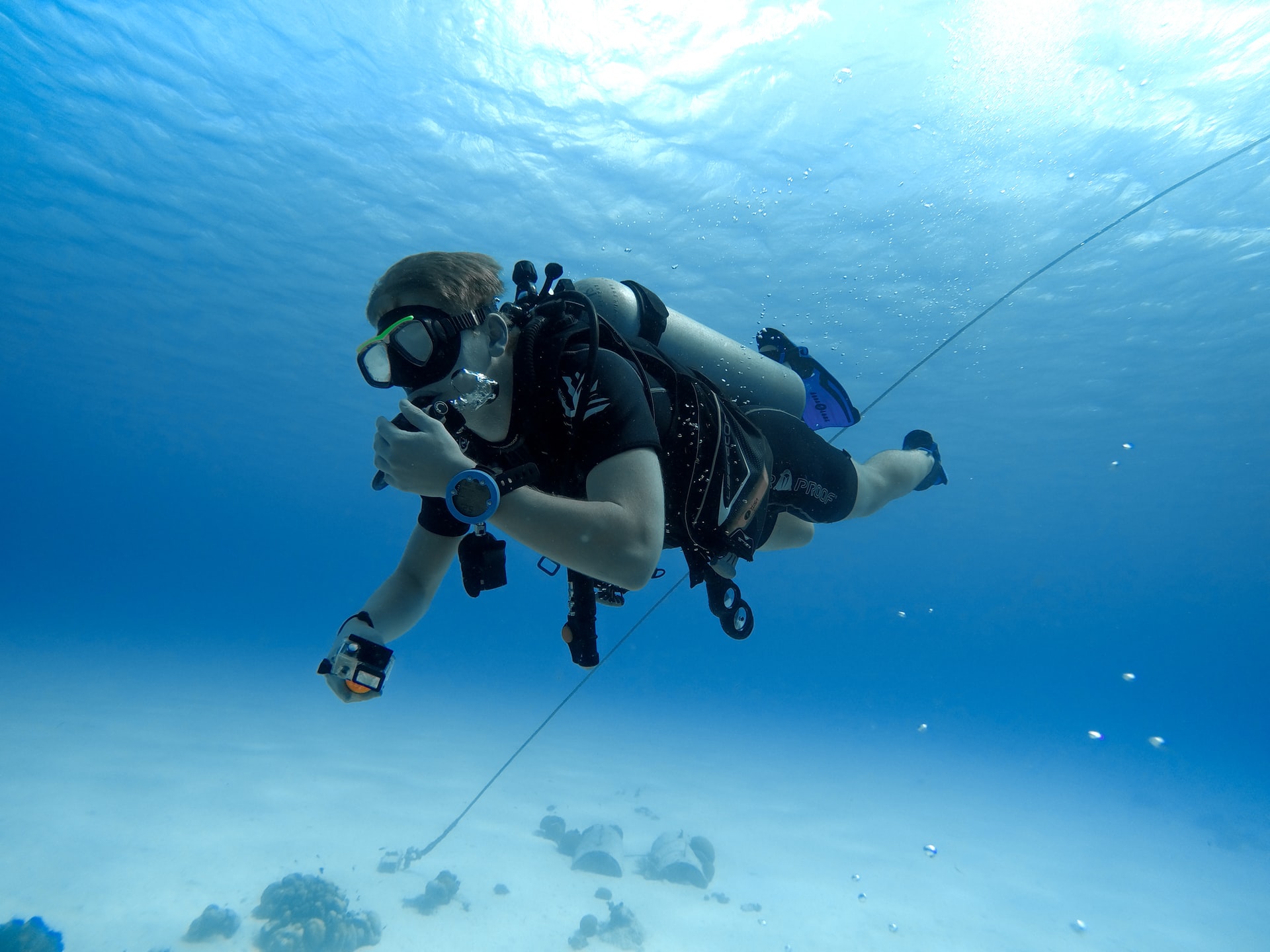
Are Scuba Divers Athletes? All the Facts (+New Competitive Forms)
-
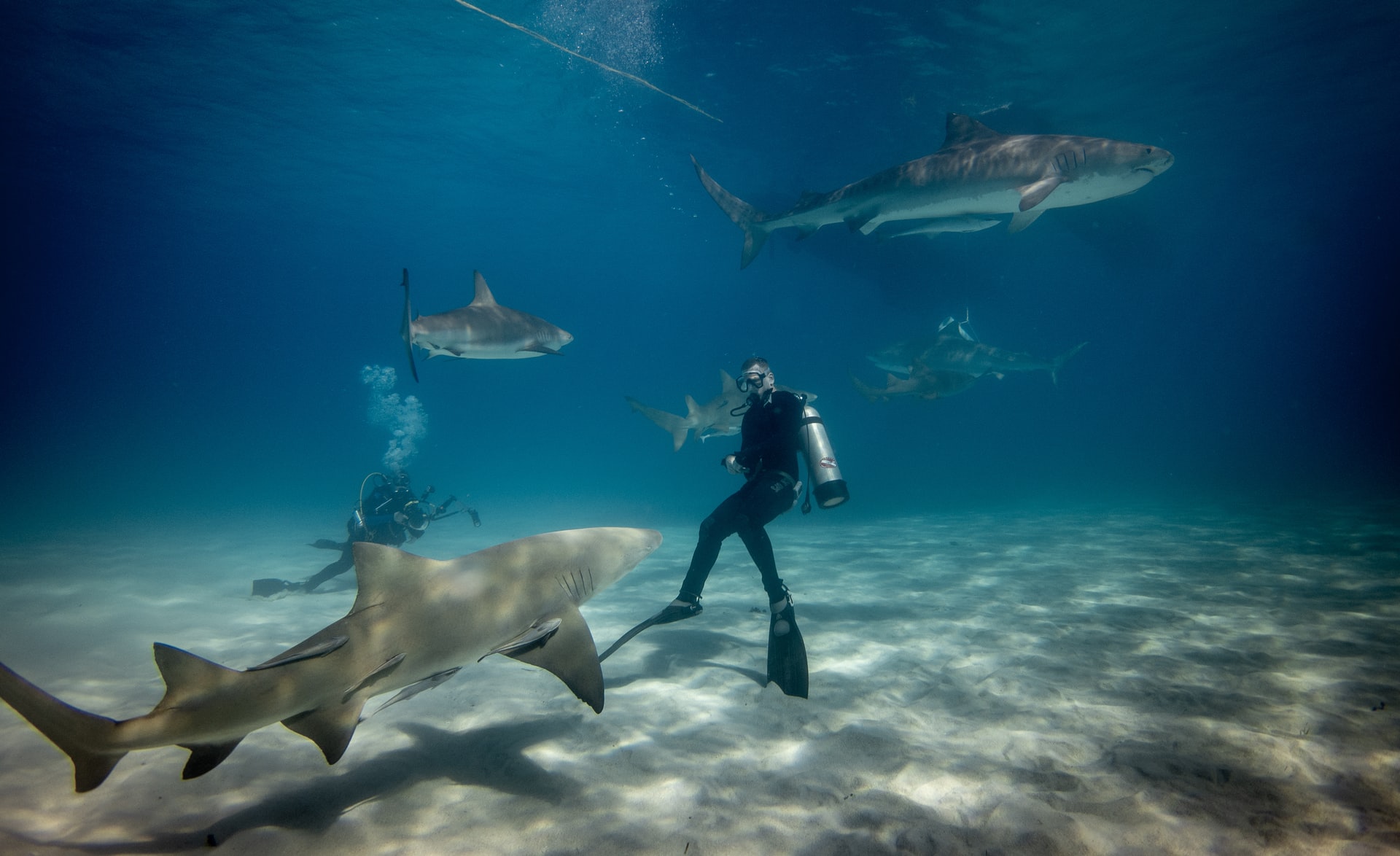
Are Sharks Scared of Scuba Divers? (What Every Diver Must Know)
-
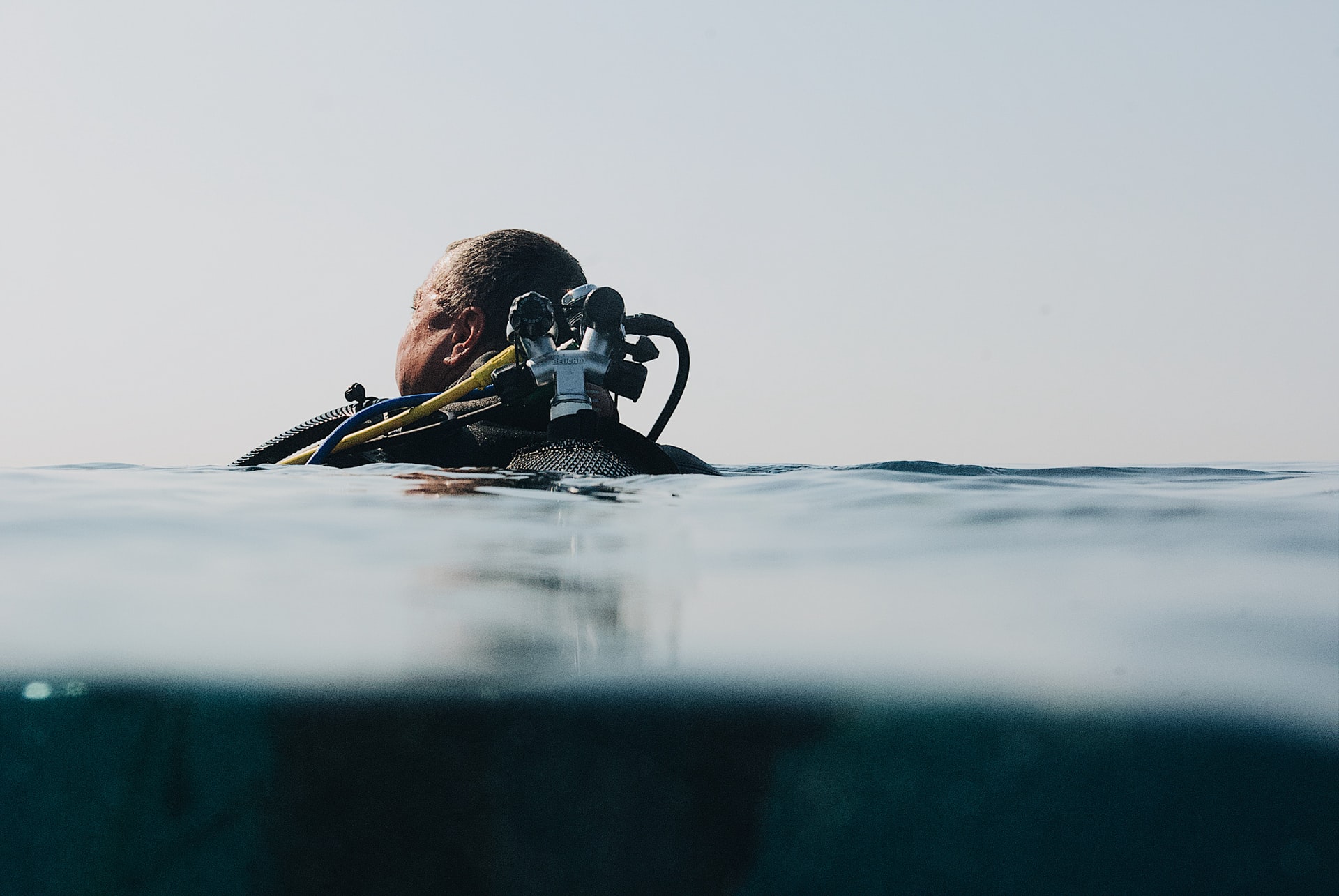
Who Should Not Scuba Dive? 17 Reasons (Every Diver Should Know)
-
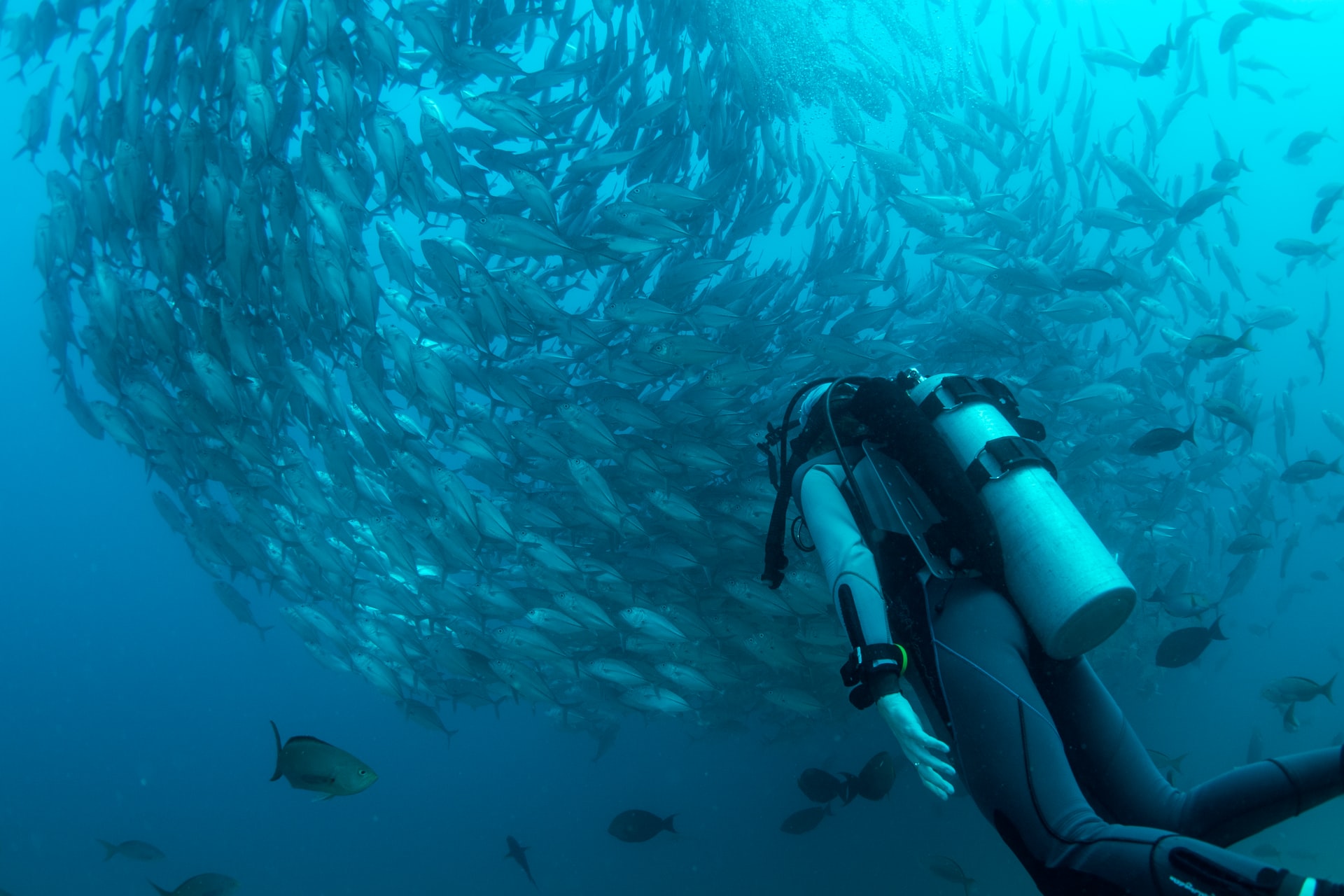
Should I Be Scared of Scuba Diving? 8 Common Fears (Debunked)
-
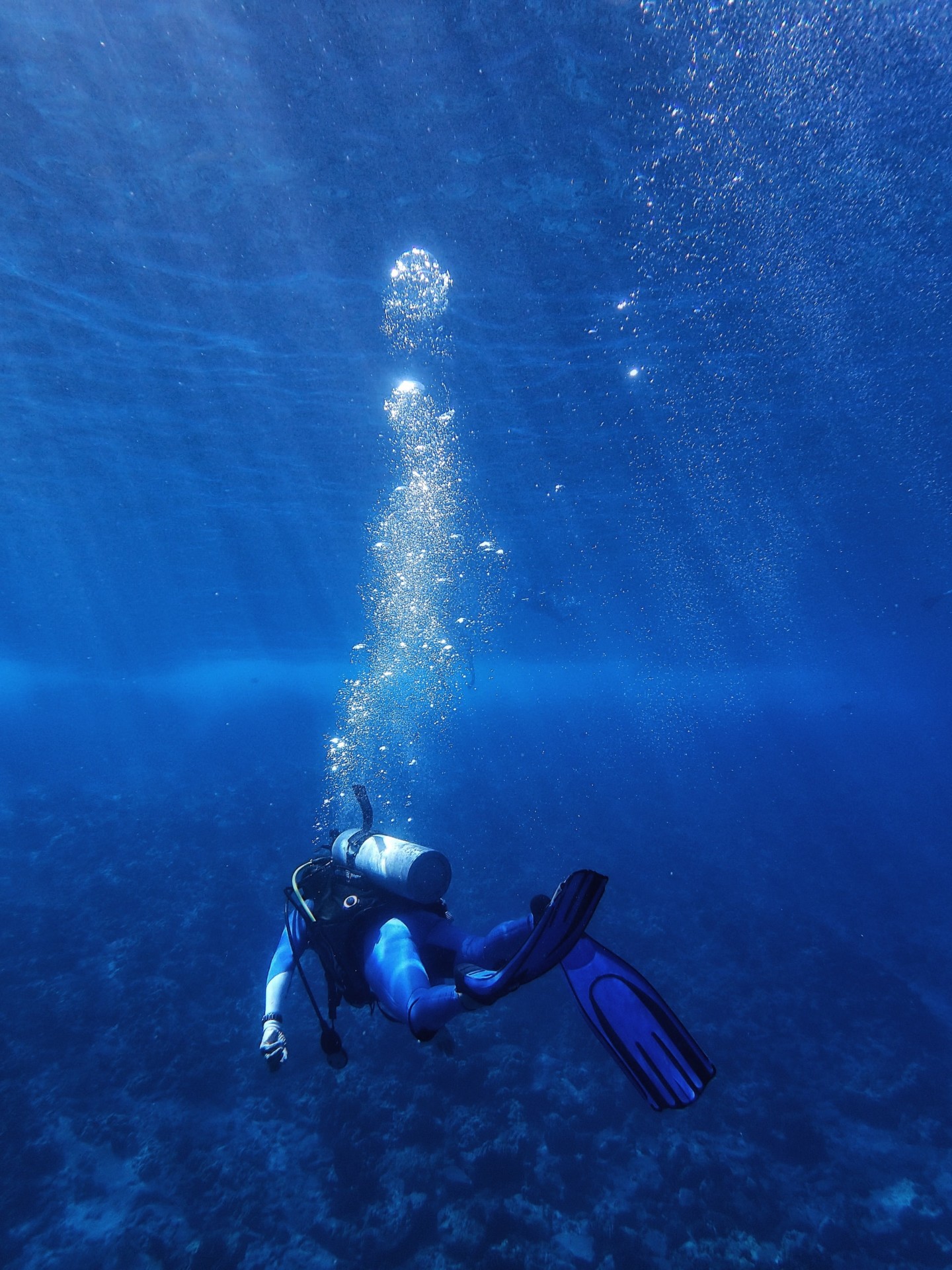
Why Do Scuba Divers Use More Air at Depth? (+4 Practical Tips)
-
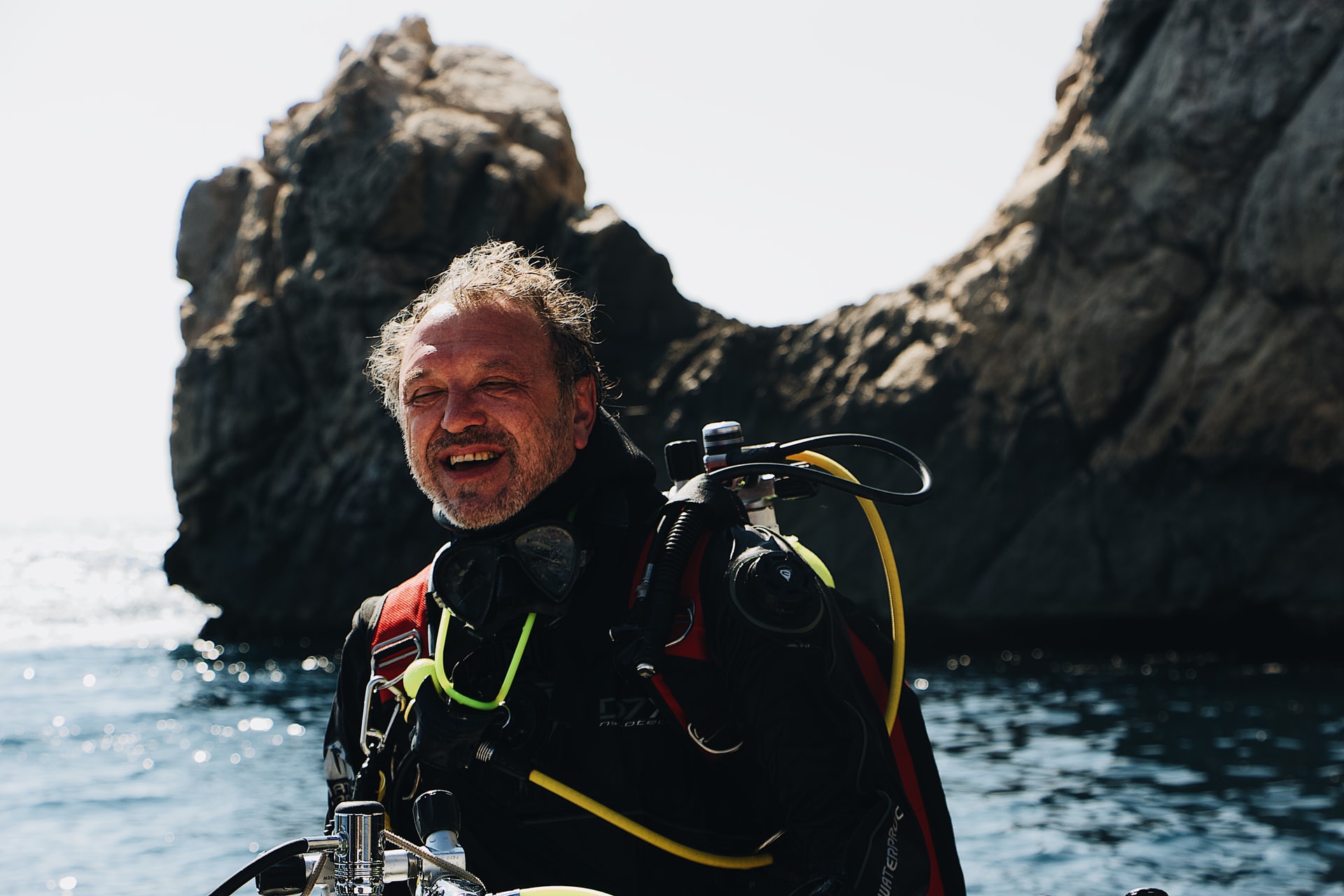
At What Age Should You Stop Scuba Diving? (+9 Tips for Older Divers)
-
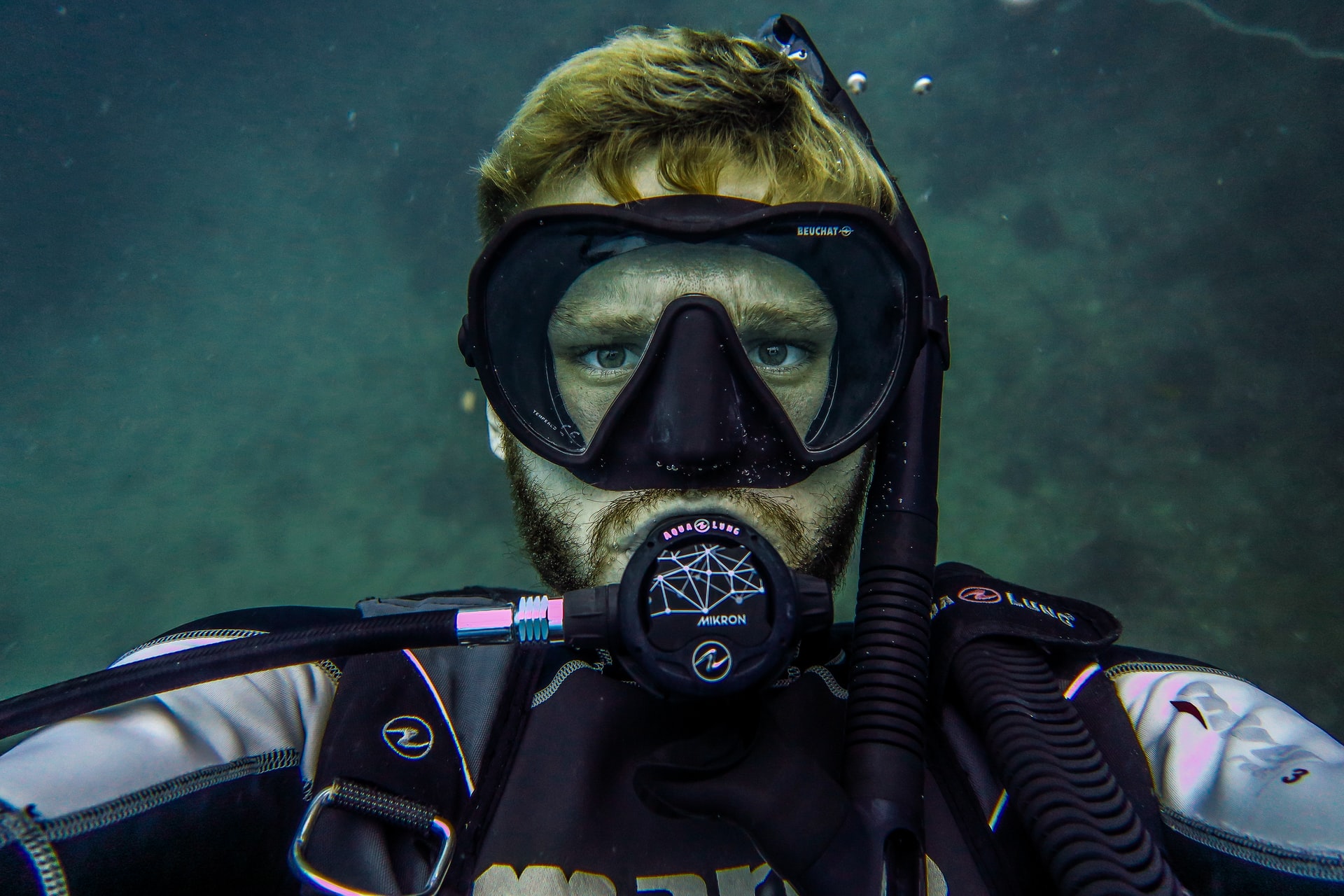
Should I Shave Before Scuba Diving? Crucial Facts (+9 Helpful Tips)
-
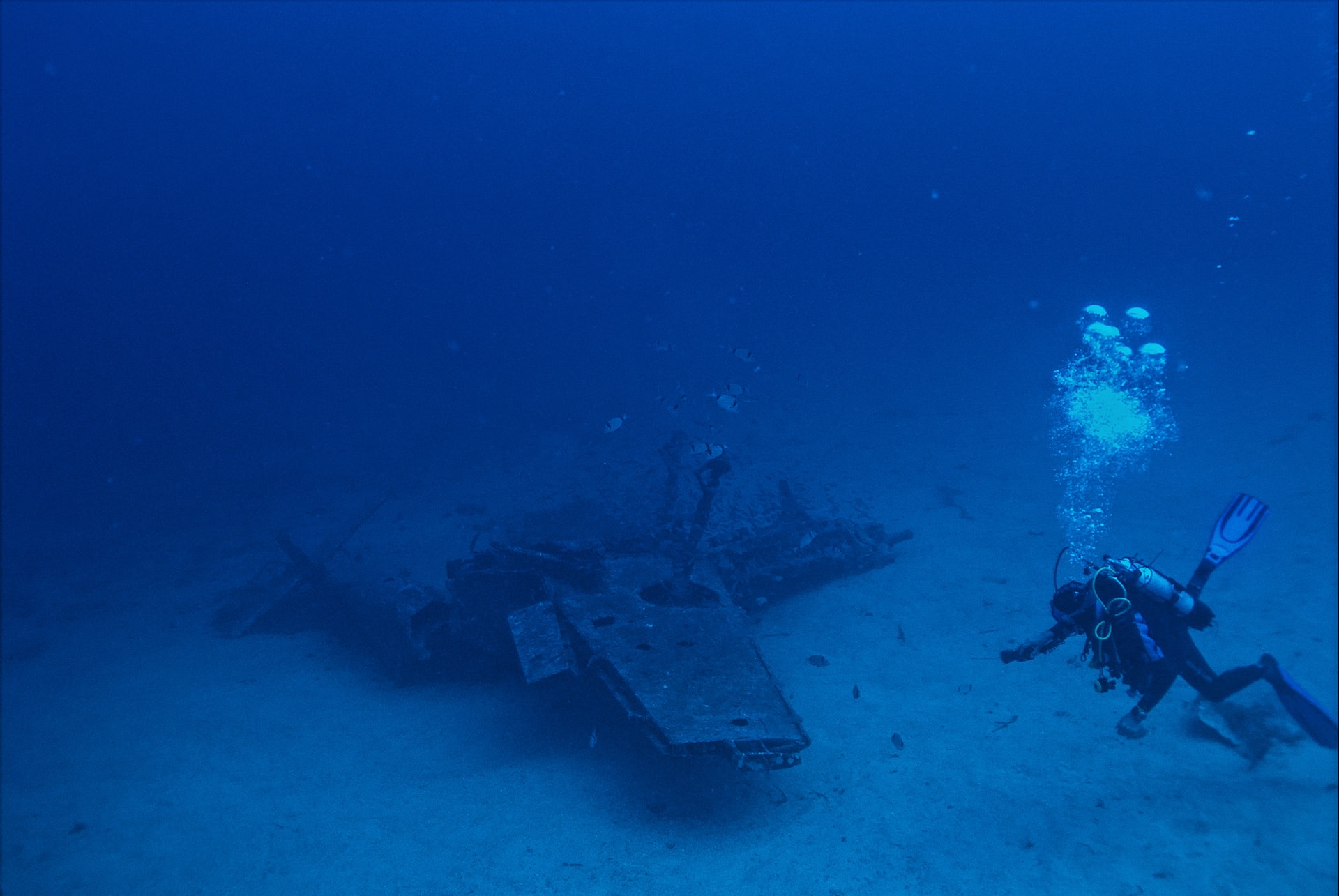
Why Do Scuba Divers Use Helium? (+Its Pros & Cons)
-
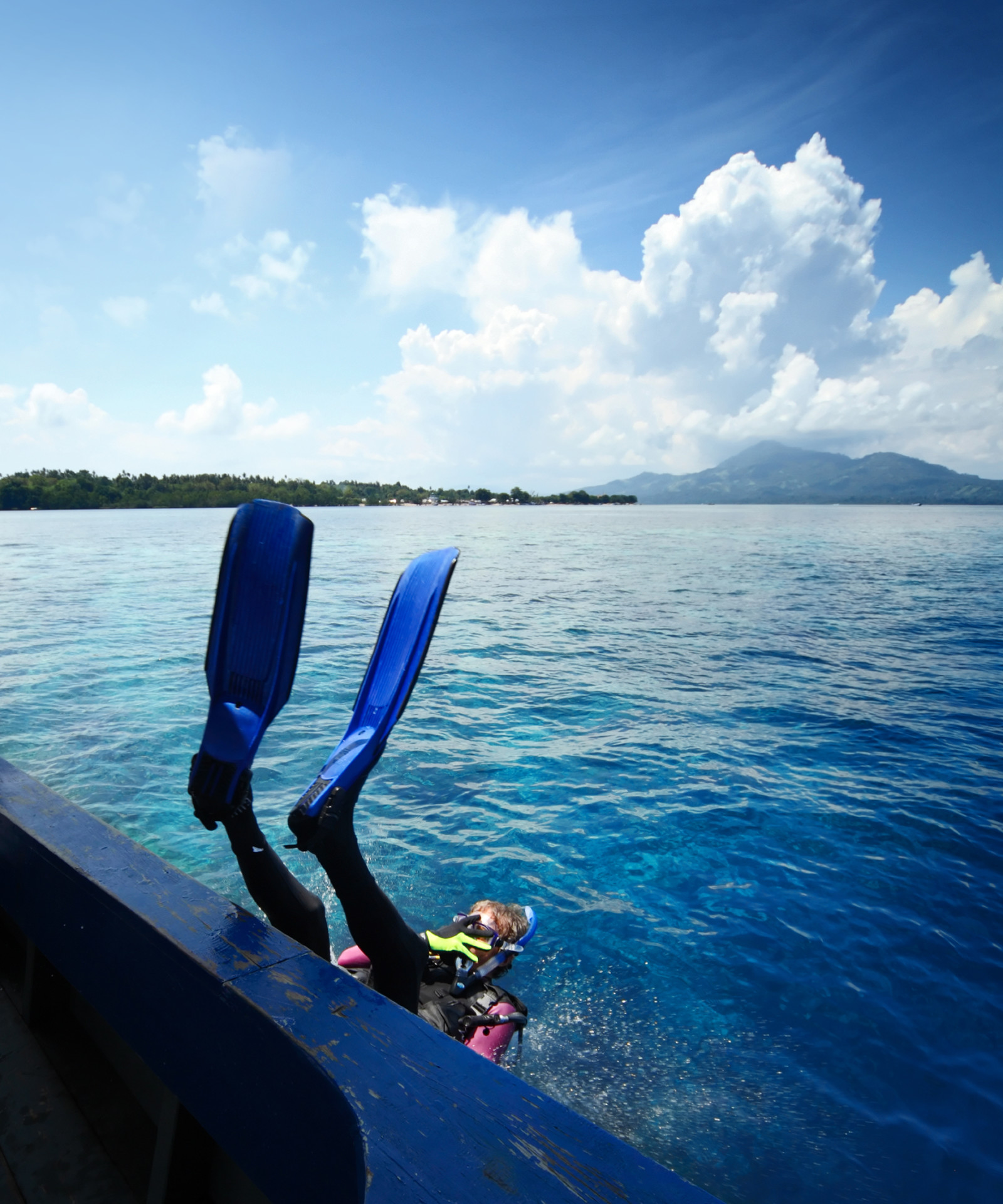
Why Do Scuba Divers Go in Backwards? (+3 Alternative Entries)
-
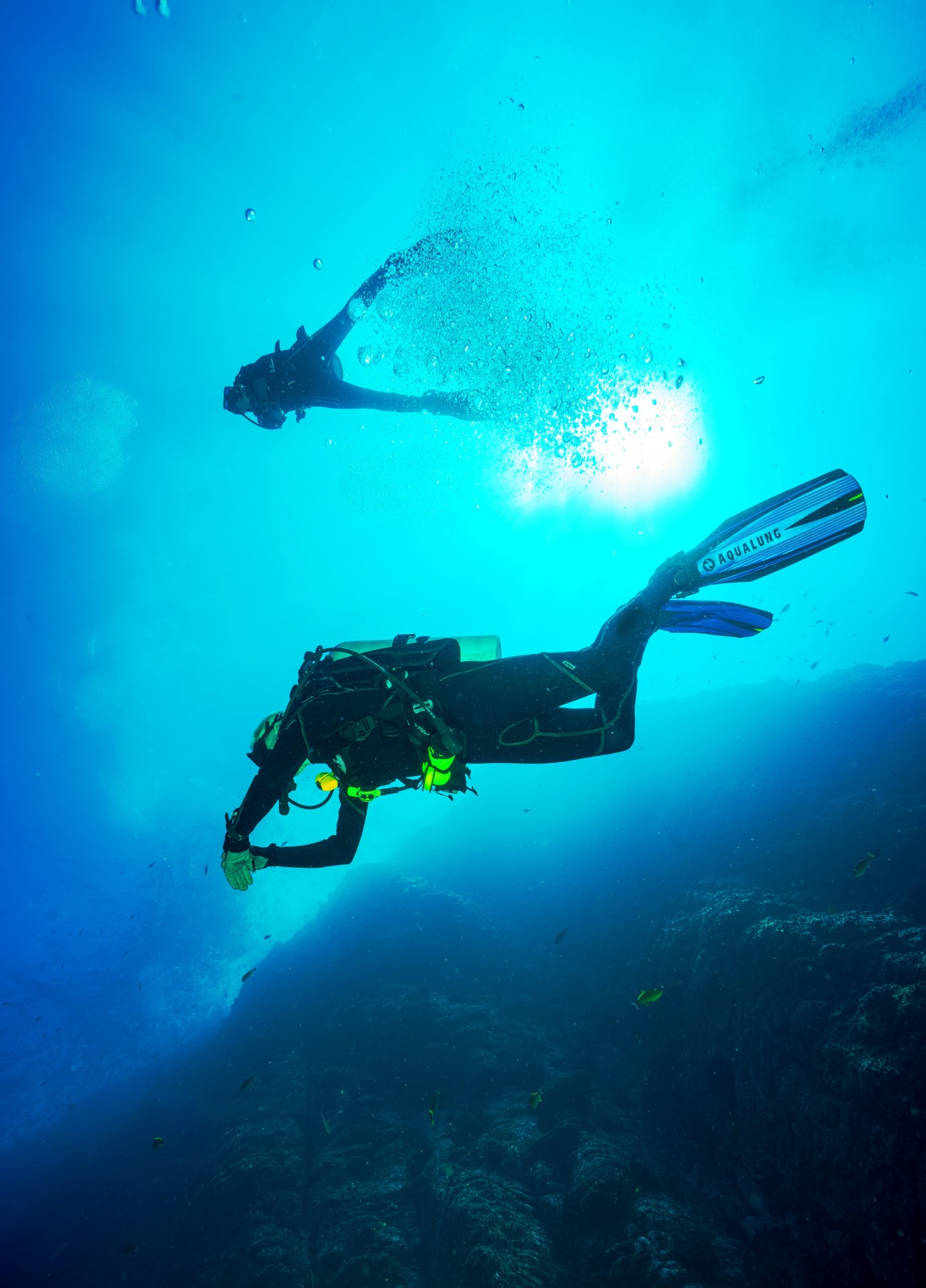
How Do Scuba Divers Sink and Float? (+Tips to Get It Right)









